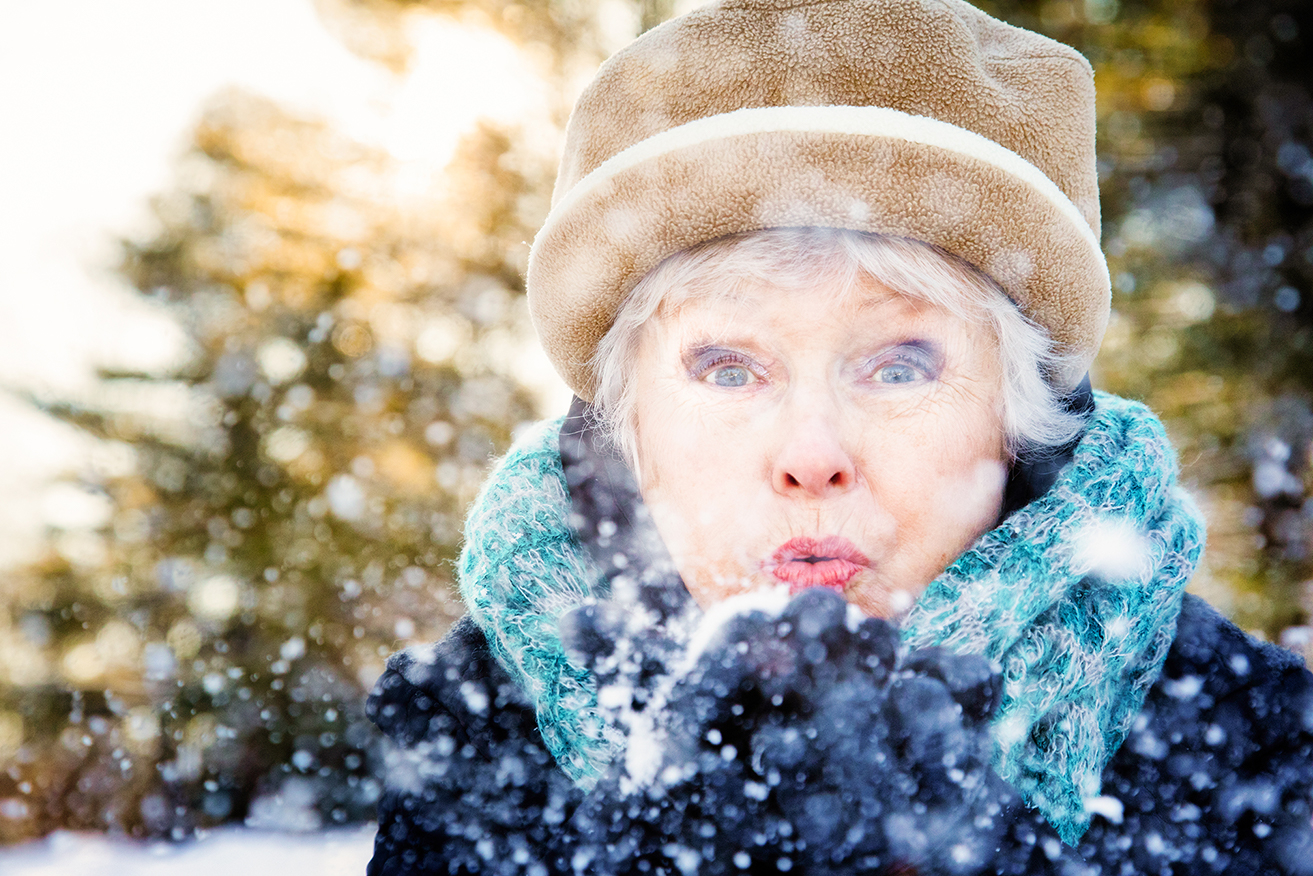
February 11, 2021
For seniors, winter can often increase isolation and bring on feelings of sadness and depression. But there are steps seniors can take to minimize the effects of winter’s dark days. Even during the COVID-19 pandemic, attention to certain aspects of life can keep you healthier, happier and less stressed. Learn more about help for the winter blues from experts at Blue Zones and make this winter blues-free!
Winter can be the loneliest time of year for seniors who are unable to safely negotiate the frozen landscape and, right now, to spend quality time with others due to COVID-19. For those residing in senior living communities, spending time together has been an easy way to keep the blues at bay while observing mutually agreed upon COVID-19 protocols. For seniors who don’t have the community structure senior living provides, one great solution is to form a “pod” of friends and/or family who are in the same situation and are equally committed to staying safe. For example, seniors who limit contact with the outside world by having groceries and medications delivered, testing for COVID-19 when there is any concern about exposure, and generally living life carefully, can form a pod together. As long as everyone sticks to the protocols, the pod can meet for occasional meals together, to enjoy a movie, or to just take a walk.
Being in a pod can help eliminate feelings of isolation while bringing a little joy and companionship back into life. Learn more about creating a pod in the Blue Zones article, “Older Adults Form COVID Pods to Ward Off Isolation This Winter.”1
Yes, winter is harsh, but it can also be peaceful and even beautiful. The sun twinkling off fresh snow, the clean, fresh air, and even the cold can boost the spirit. The Blue Zones article, “How to Practice the Norwegian Concept of Friluftsliv (And How it Can Help You Embrace a Coronavirus Winter),” details how Norwegians jump at the chance to not only embrace winter but to celebrate it! To them, winter provides a chance to enjoy nature, get exercise, and stave off the stress and loneliness of isolation. The article also provides common sense steps to take to enjoy winter outdoors while staying safe and comfortable.
For some, embracing winter might mean a short walk or a brief respite in a near-by park or other community space. Winter, however, can also provide a view of nature that can go unnoticed during warmer months. Snow covers much, but can also be revealing.
Animal tracks in woods, fields and forests can be fun to follow and try to identify. The leafless trees and bushes also make it easier to see a variety of birds — from large raptors like eagles, hawks, and owls, to small songbirds like bright red cardinals and lovely cedar waxwings. Most important of all is the impact just being in nature can have on human well-being. The Blue Zones article, “Time Spent in Nature Could Combat Psychological Effects of Coronavirus,”2 looks at the many physical and psychological benefits of spending time in nature, especially during COVID-19.
Darkness and winter are almost synonymous to many, thanks to the shorter days and often overcast skies. One thing science now knows for sure about winter is that lower light levels can have a significant impact on overall feelings of sadness and even depression. Today, this is known as Seasonal Affective Disorder, a condition that can begin as daylight hours wane in the fall, and become worse as winter progresses. For many people, a daily dose of vitamin D, either through sunshine or a supplement can help limit the effects of SAD.*
According to the Mayo Clinic, light therapy is another option that can help, when it’s the right kind of light and delivered safely. Keeping drapes and blinds open on sunny windows not only provides more natural light, but also extra warmth on sunny days. The key is to get enough light, preferably naturally, to maintain peace of mind and a healthy outlook. Find out more about the importance of light in the Blue Zones article, “Healthier by Design: Impact of Windows and Sunlight on Health, Productivity, Stress.”
One more thing all seniors can do to prevent the winter blues is to pay attention to the link between food and mood. In the Blue Zones article, “Good Mood Foods: How Diet Affects Happiness,”3 author Lani Muelrath, looks at how eating more fruits and vegetables really does keep you healthier (just like mom always said!). An added benefit, according to Muelrath, is that a plant-heavy diet can also keep inflammation in check, and even lower it, which further works to lower stress and depression in the brain, letting happiness shine through.
Living in a senior community can make enjoying winter even easier. Arrow Senior Living communities take a comprehensive and proactive approach to the health and welfare of each resident and strive to meet the highest standards in senior living. Would you like to learn more about slaying the blues this winter? Download our guide- Blue Zones or contact us today to learn more.
hbspt.cta.load(8421204, ‘a4a10fe0-319e-4ab6-a7e8-25a975236776’, {});
VITALIA® Mentor in Mentor, OH offers independent senior apartments, assisted living, and memory care with a variety of services and a range of floor plan options. Amenities include restaurant dining, 24-hour bistro, concierge service, housekeeping, events and entertainment, personal care, transportation services, and more. Centrally located near Cleveland Clinic and University Hospitals with convenient access to major shopping centers and attractions, including Little Mountain Country Club, Pinecrest Shopping and Dining, Lake Metroparks, James A. Garfield National Historic Site, Headlands Beach State Park, and Rock n Roll Hall of Fame.